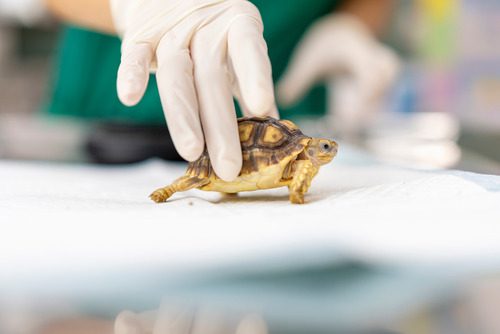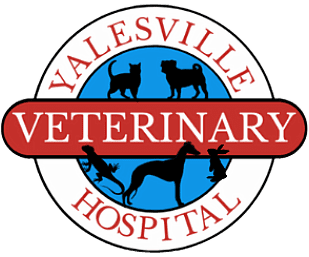6 Reasons to Take Your Pet to the Exotic Vet

If your pet isn’t a dog or cat, you might feel unsure about where to turn for veterinary care. Birds, reptiles, rabbits, guinea pigs, hedgehogs, and other small mammals have unique needs that general veterinarians may not be fully equipped to handle. That’s where an exotic vet comes in. These professionals have advanced training and experience in treating a wide range of non-traditional pets. Whether your pet needs a routine checkup, nutritional guidance, or specialized treatment, an exotic vet is your best resource. Keep reading to learn why your pet benefits from a vet who understands their species inside and out and why exotic veterinary care at Yalesville Veterinary Hospital is the trusted choice for exotic pets in Yalesville, Connecticut.
Species-Specific Expertise
Exotic pets have distinct anatomies, behaviors, and health requirements that differ greatly from those of dogs and cats. Exotic vets receive additional training to diagnose and treat these animals appropriately. This advanced knowledge helps them recognize subtle signs of illness that a general vet may miss.
Why General Veterinary Care Isn’t Enough
A dog or cat with a respiratory infection may show symptoms like coughing or sneezing. But a bearded dragon or parrot with a similar issue might only display mild lethargy or appetite changes. These are signs that can easily go unnoticed without experience in exotic species. Exotic vets know what’s normal (and what’s not) for each species they treat, which leads to earlier intervention and better outcomes.
Conditions Exotic Vets Are Trained to Handle
From shell problems in turtles to overgrown beaks in cockatiels or dental issues in chinchillas, exotic vets understand the nuances of these animals’ health concerns. They can also tailor treatment to suit the pet’s size, stress tolerance, and lifestyle.
Exotic Pets Hide Symptoms
Many exotic animals are prey species in the wild. That means they’re instinctively wired to hide signs of illness or weakness for self-preservation. Unfortunately, by the time symptoms become obvious, the problem may already be advanced.
The Importance of Regular Exams
Because of their tendency to mask symptoms, exotic pets should see an exotic vet for routine wellness exams. These visits allow the vet to check for weight changes, assess overall condition, and detect early warning signs of disease.
Subtle Signs That Could Indicate Trouble
A slightly duller coat, small change in posture, or minor drop in activity might seem insignificant, but to an exotic vet, these can signal something more serious. Their experience allows them to pick up on these red flags and investigate further before the condition worsens.
Nutritional Needs Are Complex
Exotic animals often have very specific dietary needs, and mistakes in diet are one of the leading causes of health problems. Your exotic vet at Yalesville Veterinary Hospital can help you understand exactly what your pet needs to thrive.
Common Dietary Mistakes
Feeding rabbits too many pellets and not enough hay can cause serious digestive issues. Giving reptiles an improper calcium-to-phosphorus ratio can lead to metabolic bone disease. Birds fed mostly seeds may develop fatty liver disease. These issues are preventable with the right nutritional guidance.
Customized Diet Plans
Your exotic vet will assess your pet’s age, species, activity level, and overall health to recommend a tailored diet plan. They can also guide you in choosing supplements when needed and teach you how to avoid harmful treats or toxic foods.
Safe Handling and Stress Reduction
Handling exotic pets requires a delicate touch. They’re more prone to stress than dogs or cats, and improper handling can cause injury or even death in some cases. Exotic vets and their support staff are trained to safely manage these animals with minimal stress.
Handling Techniques Matter
Ferrets squirm, chinchillas have fragile bones, and reptiles can overheat under exam lights. Exotic veterinary teams use special handling techniques, equipment, and exam room setups to create a safer environment for both pet and provider.
Reducing Anxiety at the Clinic
From quiet waiting areas to temperature-controlled exam rooms, exotic vets create an atmosphere that caters to the species they treat. This reduces anxiety and leads to a better overall experience during vet visits.
Access to Proper Diagnostics and Equipment
Exotic pets often need specialized diagnostic tools that aren’t used in general veterinary practices. From imaging to bloodwork, exotic vets invest in the right equipment to accurately assess small and delicate species.
Specialized Equipment for Smaller Species
X-rays for reptiles, dental tools for rodents, and micro-surgical instruments are just a few examples of what exotic vets regularly use. These tools are designed for the precise care that exotic pets require.
Lab Testing Tailored to Exotic Animals
Exotic vets partner with labs that understand how to analyze samples from birds, reptiles, and small mammals. Standard labs may not yield accurate results for these species, so working with the right team makes a big difference in diagnosis and treatment planning.
Long-Term Health Management
Exotic pets live longer, healthier lives when they receive consistent care from an exotic vet. From husbandry advice to disease prevention, having a trusted veterinary partner makes a noticeable difference in your pet’s quality of life.
Preventive Care Is Key
Exotic vets help you create a care routine tailored to your pet’s needs. This includes guidance on proper housing, lighting, humidity, grooming, and social interaction. Preventive care reduces the risk of emergency visits and supports your pet’s long-term well-being.
Building a Veterinary Relationship
Seeing the same exotic vet regularly allows them to track your pet’s history over time. This familiarity helps them detect small changes more easily and adjust care as needed. It also helps your pet become more comfortable with vet visits.
Give Your Exotic Pet the Right Start and Lifelong Support
No matter what kind of pet you share your home with, they deserve expert veterinary care. Exotic pets require a different approach, and working with a knowledgeable exotic vet can make all the difference in their health and happiness. If you live in or near Yalesville, Connecticut, Yalesville Veterinary Hospital offers experienced exotic veterinary care tailored to your pet’s species and lifestyle. Call (203) 265-1646 or book an appointment online today to give your pet the specialized care they need.
